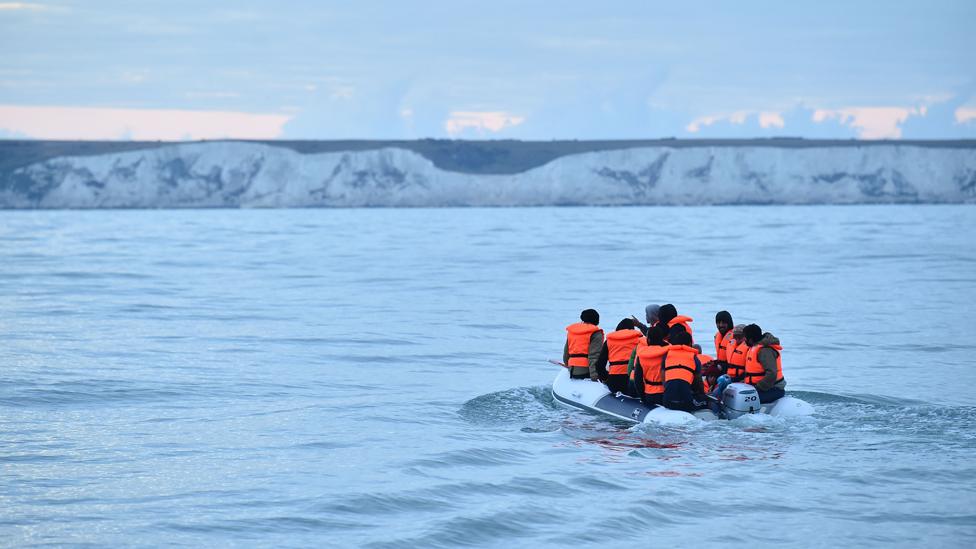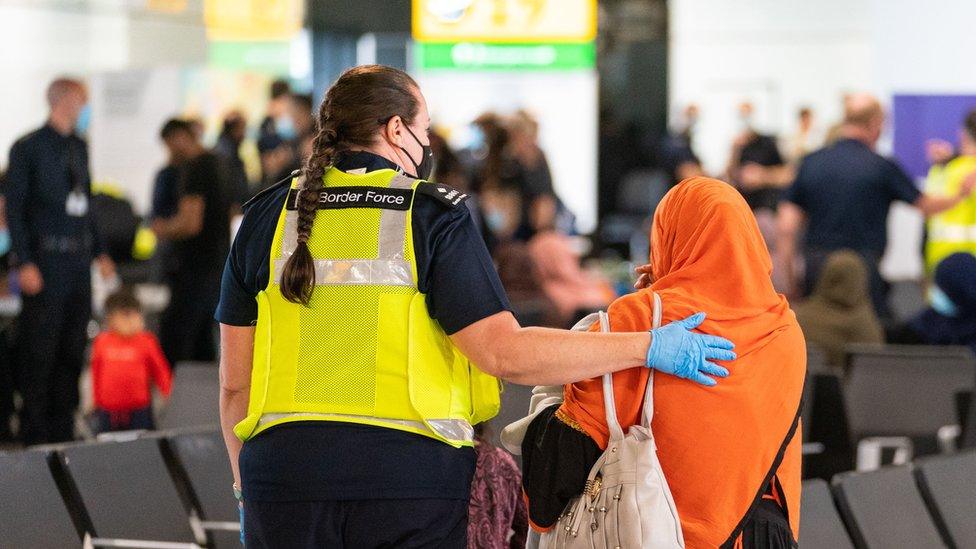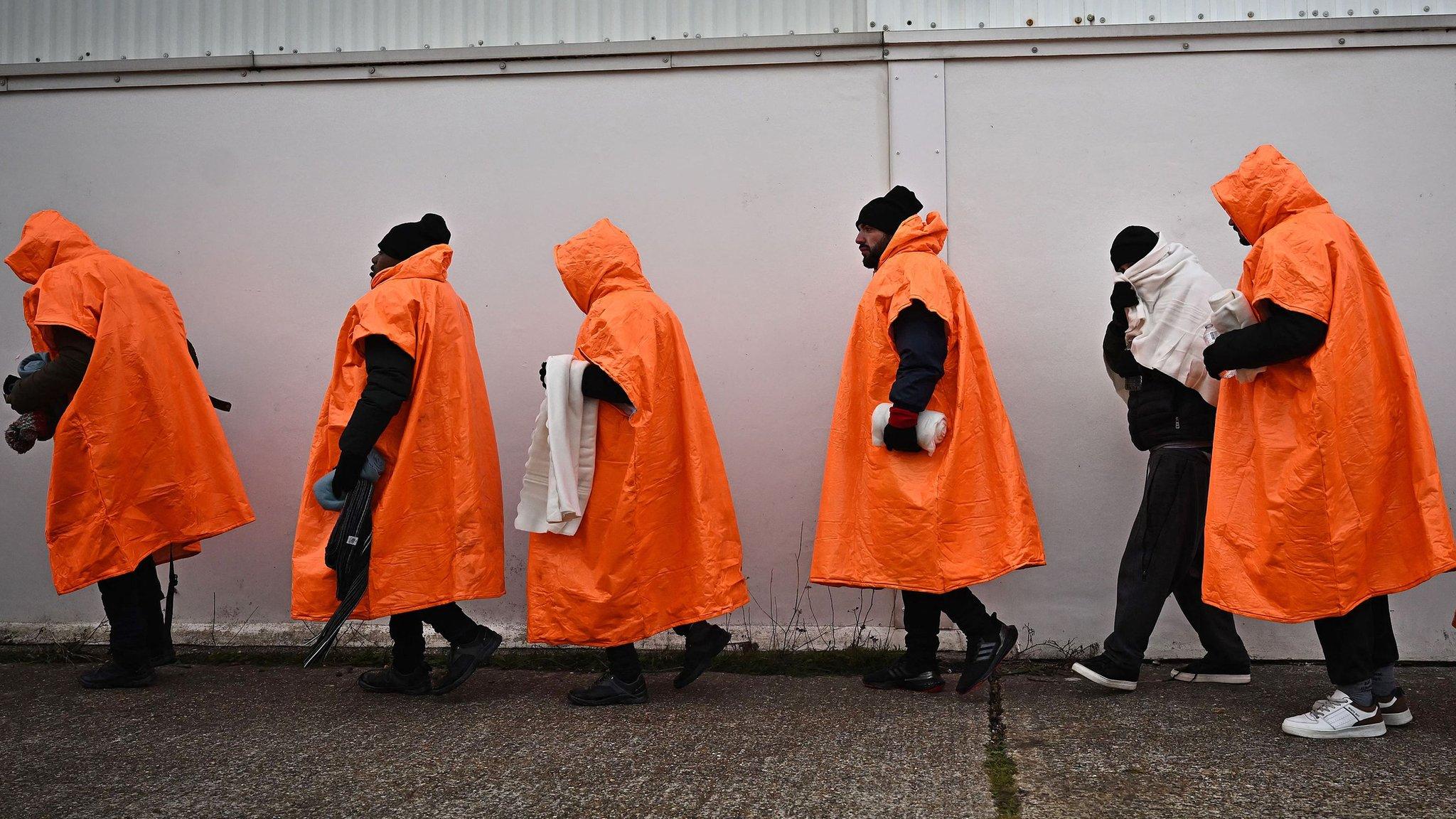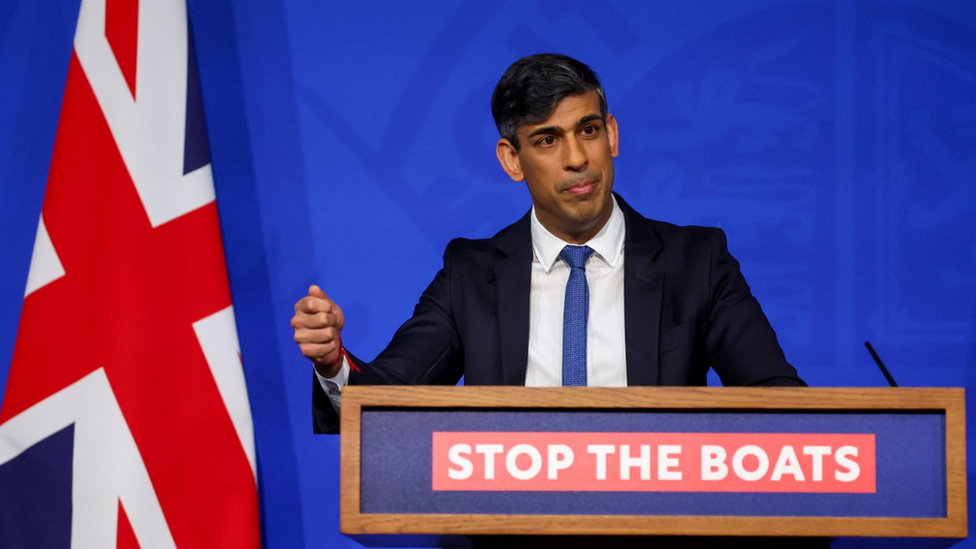Migrant hotels will start closing in the coming days, says minister Robert Jenrick
- Published
Robert Jenrick says hotels should not be housing illegal migrants at "unsustainable cost to the taxpayer".
Fifty hotels will be closed to asylum seekers by January and the government will "not stop there", immigration minister Robert Jenrick has told MPs.
He said hotel contracts would end in "all four nations of the UK" in the coming months as his plan to cut asylum claims was "starting to work".
About 400 hotels were being used to house record numbers of asylum seekers.
The hotel contracts cost the taxpayer £8m a day, which Mr Jenrick said was "unacceptable" and "unsustainable".
Labour's shadow immigration minister Stephen Kinnock dismissed the minister's announcement, saying he was only planning to close a "paltry" 12% of hotels currently in use.
"He is like an arsonist who has burnt our house down and expects us to thank him for throwing a bucket of water on it," Mr Kinnock told MPs.
In a statement to Parliament, Mr Jenrick said agreements with France and Albania along with stricter penalties for those connected to illegal migration had helped reduce the numbers arriving in small boats, enabling the government to start ending the use of asylum hotels.
He also said a push to increase room-sharing in hotels and accommodating asylum seekers in disused military sites had freed up space.
He added the government would continue to house people on the Bibby Stockholm barge in Portland. The vessel, which has a capacity of 500, is currently holding 50 people.
The Home Office has not confirmed the costs of the barge, but Labour estimates that the current occupancy rate means the government are spending more than £800 per person per night for someone to stay on the Bibby Stockholm.
Speaking on BBC Breakfast, Mr Jenrick said the figure was "completely wrong" adding: "As soon as it [the barge] is at full capacity, then it will be better value for money than a hotel."
The use of hotels has increased exponentially as the number of people claiming asylum in the UK has increased.
The Home Office has an obligation to house asylum seekers, who would otherwise be destitute, whilst their claim is being processed.
In August, the number of asylum seekers having their application processed reached a record high of 175,000 people.

How many asylum seekers are living in hotels and where are they based?
At the end of June 2023 there were 50,546 asylum seekers living in hotels in the UK
This is a 10% increase compared with the end of 2022, when there were 45,775 people living in hotels
In March 2023, government sources told the BBC there were 395 hotels being used for this purpose
The majority of them - 363 - were in England, 20 in Northern Ireland, 10 in Scotland and two in Wales
Between April 2022 and March 2023, the government spent about £2.3bn on hotel accommodation

Since the beginning of the year the government has doubled the number of people processing asylum applications, external to 2,500.
Labour have called for 1,000 more caseworkers to be hired to clear the asylum backlog.
Peter Walsh, a researcher at Oxford University's Migration Observatory, told the BBC that while the legacy backlog - applications made before the end of June 2022 - had fallen, this had been offset by new applications.
He questioned where asylum seekers would be housed given the total backlog of cases had remained largely stagnant since last year.
Over the summer, local councils raised concern that some Afghan families were facing homelessness after being told by the government to move out of hotels.

Some hotels have stopped housing migrants in recent weeks, including around Northampton and Kettering - potential target areas for Labour at the next general election.
The government has not published a list of all the hotels set to close.
However, the minister did tell Sir George Howarth, the MP for Knowsley that the hotel in his constituency - which was the scene of violent clashes earlier in the year - was one of the hotels due to be shut for asylum seekers.
In 2022, small boat arrivals across the English Channel accounted for about 45% of asylum applications made in the UK.
According to the latest figures, the number of small boat crossing so far this year is 26,501, down from 37,578 by this time last year - a reduction of 30%.
The government hopes its plan, announced in April 2022, to send some asylum seekers to Rwanda to claim asylum there will help reduce crossings further.
The legality of the scheme is currently being considered by the Supreme Court, after the Court of Appeal overturned an earlier High Court ruling that the plan was lawful.
- Published19 September 2023

- Published13 December 2023

- Published13 June 2024
